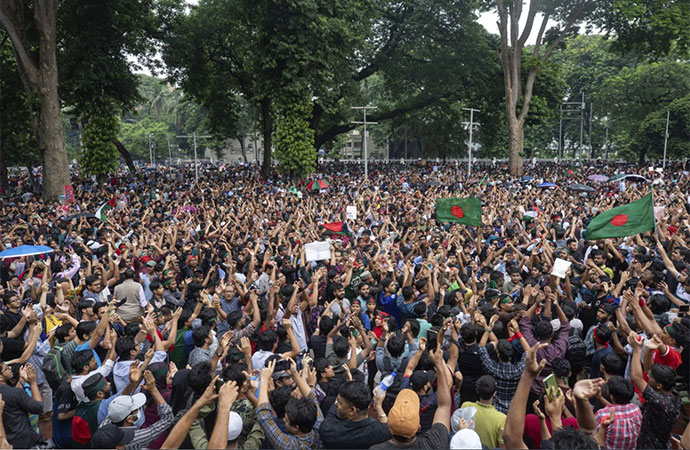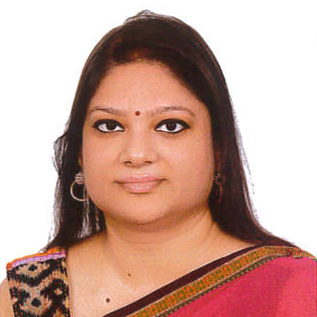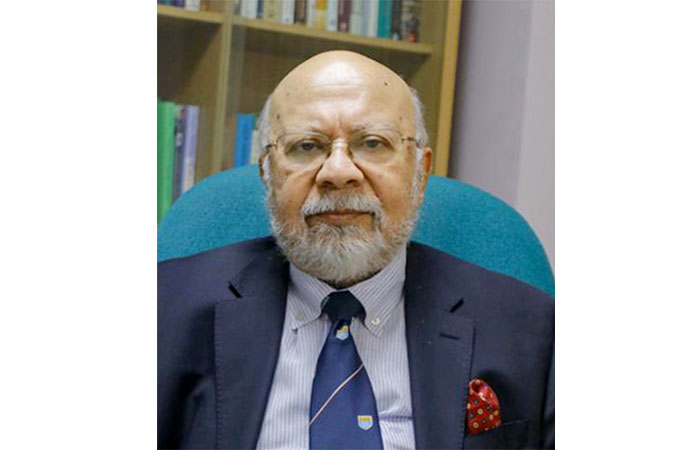Column

Photo: AP/ UNB
Last few months were testament to the fact that the peril of journalists is augmented whenever there is a shift in the political environment of the country. The safety of the frontline has always been compromised or less prioritised but the recent cases that range from censorship to arbitrary detention and even killing is gravely concerning. Filing of farcical cases, erroneous arrests, attacks unleashed when the journalist is on duty - all these send a mixed signal as other recent developments made in relation to safeguarding press freedom have been heartening.
In October 2024, Swapan Bhadra, a local journalist of Mymensingh, died after being hacked by a local drug dealer, who he had a long-standing dispute with, as per newspaper reports. The 55-year-old former vice-president of Tarakanda Press Club was known for his stance against terrorism and drug trafficking in the area.
The same month, police mistakenly detained and later released Mehedi Hasan Sagar, a photojournalist of English daily Dhaka Tribune in a case lodged over attacks and murders during the anti-discrimination student movement. Police arrested him for another Mehedi Hasan Sagar who happens to be the organising secretary of Mujib Hall wing of now-banned Chhatra League at University of Dhaka. The photojournalist had in fact risked his life to collect footage of the July-August movement as a stringer of AP.
In November, Shahidul Islam Nirob, Jamalpur district correspondent of The Daily Star, came under attack when covering an event organised by the Bangladesh Chhatra Union, the student front of the Communist Party of Bangladesh. As per newspaper reports, the miscreants led the attack on the event mistaking it for a Chhatra League conference. Despite identifying himself as a journalist, Shahidul Islam was not spared and had to be admitted to a hospital for his injuries.
Last month, Sonagazi correspondent of Desh Rupantar Abul Hossain Ripon was granted bail in a case related to casualties during an anti-discrimination student movement. RAB detained Ripon in a case filed on November 18 by Abdur Rob, a CNG driver. The case accused 142 named individuals and 70 unidentified persons. Ripon was listed as the 52nd. During court proceedings, Abdur Rob stated before the judge that he did not know Ripon and that BNP-Jamaat leaders gave him BDT 10,000 and took his signatures on several blank stamps. Ripon claims that he had been practicing journalism for two decades and personal enmity could have led to his inclusion in the case.
Journalists "seen as supportive of the recently ousted government" facing criminal cases and detention, suspension of National Press Club membership as well as revocation of press accreditation have drawn serious concerns and criticisms from global rights groups. Violent demonstrations and attacks on the offices of prominent national dailies terming them as "agents of India" is also concerning; indicating an unsafe environment for journalists.
In a recent instance where a play was abruptly suspended midway fearing attack at Bangladesh Shilpakala Academy sparked controversy. The tension further fuelled when a group of people threw eggs at the demonstrators belonging to Bangladesh Group Theatre Federation protesting the incident in the capital.
In face of the popular demand, the interim government has repealed the Cyber Security Act, a law that has long been weaponised to silence dissent and media. Critics ranging from CSOs to lawyers, academicians, digital rights and cyberspace experts, and journalists have already raised significant concerns regarding the formulation and potential impact of the approved draft of the Cyber Safety Ordinance 2024.
Arguments are in place that the government's limited consultation and lack of transparency undermined the credibility of the process. The draft was reportedly available for public review for only three days, and only one consultation session was held, raising questions about whether a human rights approach was considered in its creation. Concerns were raised about the broad scope of the law, which attempts to address disparate issues like cybersecurity, cyberbullying, and critical infrastructure under a single framework.
Criticism is widespread on expanded police powers, allowing arrests and searches without warrants, echoing contentious provisions from the repealed Digital Security Act (DSA). These powers risk being misused, as terms like "terrorist activities" "cyber bullying" and "hate speech" lack clear definitions.
In a webinar held on Cyber Safety Ordinance 2024 recently, ICT Prosecutor Saimum Reza Talukdar said that the new law has a lesser number of clauses. The previous law had 64 clauses and this new one has 52 clauses. It contains some new terms and modified definitions for global intelligence, traffic data, malware etc. But definitions of online sexual harassment or online child pornography is still missing. The National Cyber Security Council is also dominated by ministers but the CSO members have not been included.
Rezaur Rahman Lenin, an academic activist, strongly suggested that first of all there should be a scoping study to understand what cyberspace is. A team should be formed who will define what freedom of expression is, how it is violated and how it can be protected. They need to pinpoint the areas where the crimes are taking place, where exactly the issues of FoE (Freedom of Expression) lie. Brainstorm on the nature and length of the punishments and trial process for the different crimes. Such a process however, may take up to two years before the creation of a law. Now the question is, till then, under which law would we seek justice for cybercrime?
The interim government has formed a 11-member media reform commission which has announced that they would consult publishers, editors, and journalists of local newspapers and will also conduct public opinion surveys to evaluate the current state of media freedom. It is working on developing strategies to make the media financially self-reliant and ensure financial security for all media workers.
It is of pivotal importance that whatever new law and commissions are under process must turn out to be conducive forces to the implementation of SDG 16: Peace, Justice, and Strong Institutions. To be more specific, SDG target 16.10 - to ensure public access to information and protect fundamental freedoms, in accordance with national legislation and international agreements.
Crimes cannot be contained by law only. Education and awareness are essential to tackle issues like disinformation and technology-facilitated gender-based violence. Programmes and campaigns on internet safety should target different age groups and schools. Internet literacy initiatives should be carried out in primary schools not only for the students but first, for the teachers. YouTube videos and tutorials may come handy in this regard. Investments to strengthen the capacity of journalists and civil society organisations (CSOs) with essential safety knowledge and skills is crucial to enabling them to continue their professional work while mitigating threats and fostering collaboration.
Promiti Prova Chowdhury is manager for the project "Collaborative Action for Freedom of Expression" at VOICE. She can be reached at promiti.chowdhury@gmail.com

























Leave a Comment
Recent Posts
Pedaling Through the Mangroves ...
The journey from the bustling streets of Barishal to the serene, emera ...
Why the Interim Government mus ...
Two weeks out from what is expected to be a red letter day in the figh ...
Doesn’t matter who thinks what about Bangladesh deci ..
The Other Lenin
US President Donald Trump said his administration
Govt moves to merge BIDA, BEZA, BEPZA, MIDA